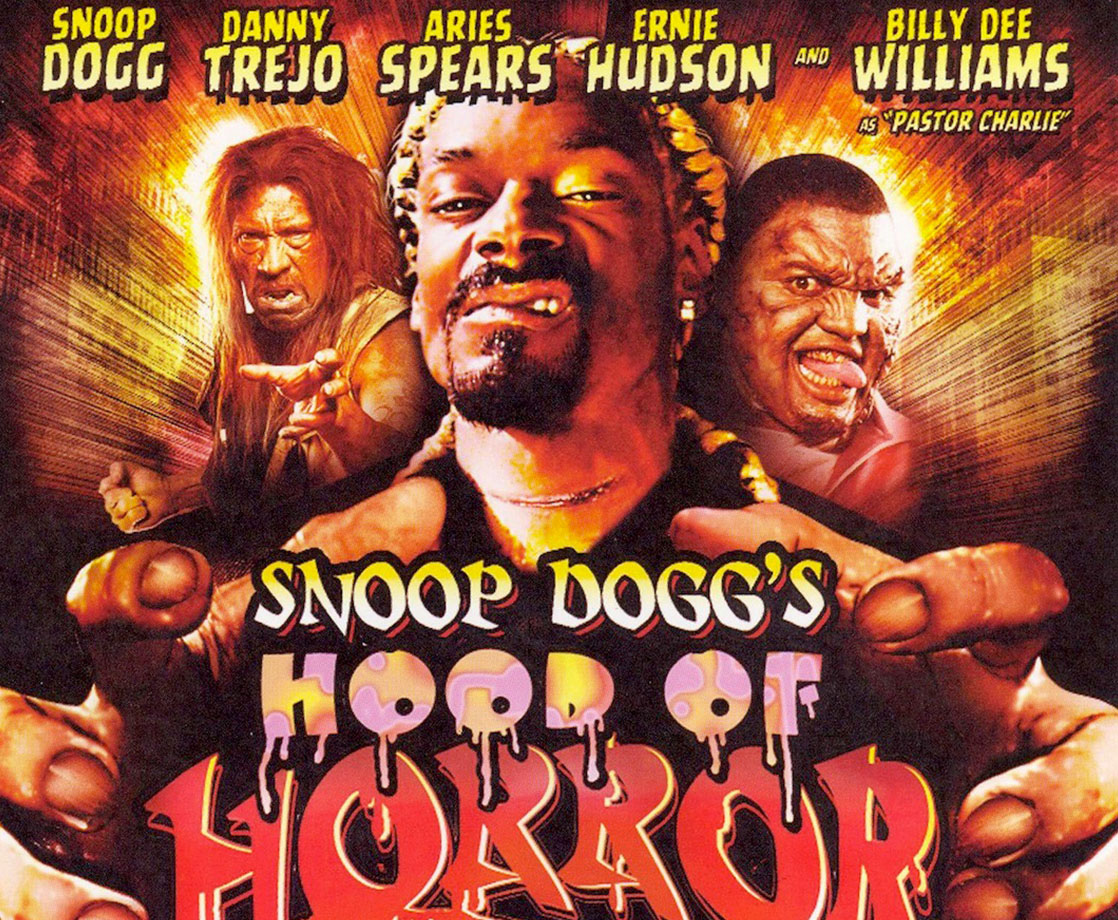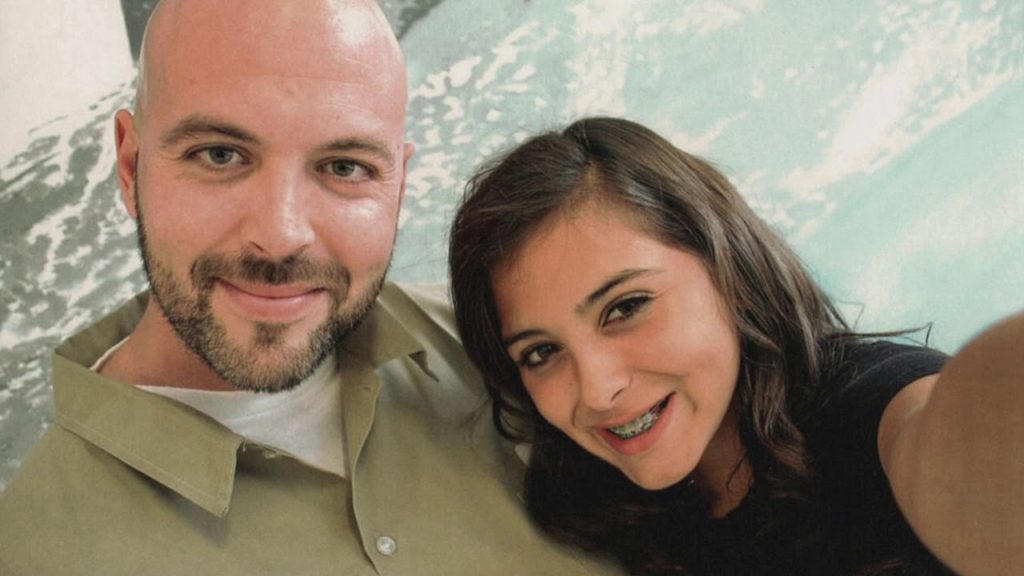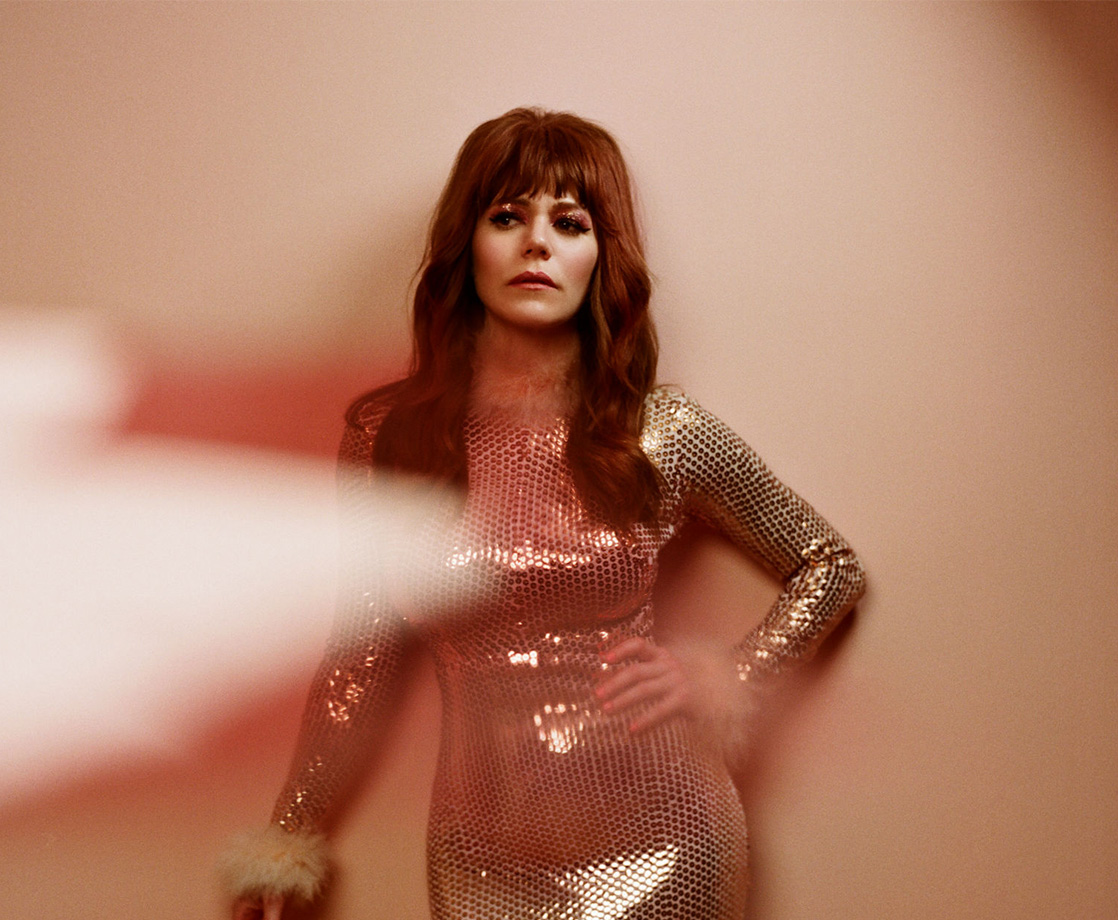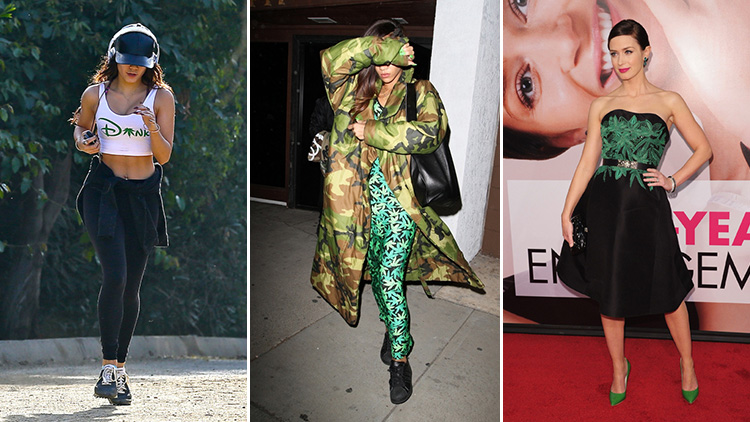This Halloween, I invite you to interrogate your fears. What haunts you? Is it grief, loss, fear, pain, some combination of the above? Halloween is not only for drunkenly TPing houses and slipping your expensive edibles to unsuspecting children. It's a time to reflect: to consider how our fears lead us to what we truly hold dear.
Anthology film Snoop Dogg's Hood of Horror will guide you down your reflective path. HOH is a frame narrative that opens with an stylized animated sequence in which anime Snoop Dogg accidentally shoots his younger sister. He then trades his soul to the devil to bring her back to life. Thus, he is doomed to ferry souls into the underworld forever. The film tells the stories of three of those souls — the horrible things they did, and the horrible ways they must atone for their actions.
I first watched Hood of Horror around its release in 2006; I don't remember exactly what year it was, but I do remember it was October, and I found the DVD on the bottom shelf of the horror section of my local Blockbuster where I spent many stoned evenings wandering. I was drawn to the cover: whimsical, carnivalesque, with Snoop Dogg's face overseeing the affairs.
It's nowhere online: not Netflix, Hulu, Amazon, iTunes, nor Google Play. It's not on niche streaming horror services like Shudder or Screambox. You can't find it in a Redbox. You can get a copy on Amazon – but there aren't many copies, and I assume the sellers have cursed them. I recommend an old-fashioned perusal of your local used book store. If you read this, it's likely a copy will find you.
From the classic Amicus Anthologies (including Tales from the Crypt) of the '60s and '70s all the way to the modern classics V/H/S and its ilk, anthologies are a staple of the genre. Fear is so primal, so overwhelming and ephemeral, that a story doesn't need to be long to conjure it up. Hood of Horror is extremely straightforward. It's about people whose choices doom them to hell.
But these choices are not choices made in a vacuum. Horror is about the individual as much as it about the society one operates within.
The first soul Snoop Dogg drags to hell is Posie (Daniella Alonso), a young graffiti artist. After Posie peacocks in front of the two men who run the block, she's given an otherworldly power to kill by Zombie Danny Trejo. She takes the two men's lives in a spectacular fashion, but instead of using her freedom from their rule to develop her own artistic career, she continues tagging. For squandering the power bequeathed to her by Zombie Danny Trejo, Snoop Dogg claims her soul.
The second soul is Tex Woods Jr. (Anson Mount), son of a recently-deceased decorated Vietnam veteran, who is instructed by his lawyer to go live with his father's brigade for a year before he can access his father's money. Tex, a white man with a ditzy white girlfriend, abuses the brigade of four black men, kills one, then kills their home care nurse. Led by a delightfully stern Ernie Hudson, the men take revenge on Tex, feeding his girlfriend caviar until she explodes, and then killing Tex in the same way Tex killed his father – a longhorn skull's horn to the throat. Snoop takes their souls, and shoots their chihuahua.
The third is SOD (Pooch Hall), a young hip-hop artist looking to make it big, with the help of his friend Quon (Aries Spears), record executive Jason Alexander, and a Method Man cameo. SOD has a penchant for raping underage women, and Quon has a moral compass and won't stand for it. As a result, SOD arranges his murder. An agent of hell, played by Lin Shaye who will later exorcise in Insidious, forces SOD to watch his own missteps on tape, and then invites Quon's corpse to terrorize SOD, An American Werewolf in London-style. Quon then kills SOD's hitman/bodyguard and frames him for it. The police kill SOD, and down he goes with Snoop.
Each character's choices represent a larger ill within our society: for Posie, it's vengeance in lieu of self-actualization, for Tex it's white entitlement and racism, and for SOD it's the corrupting power of wealth.
Snoop asks us, through these frightening, grotesque, harrowing vignettes, to consider our lives on a demon's terms. What have you done in your life that may win you a trip down the elevator into the dark? Where have you chosen self over community? Where has your greed overtaken your heart?
He lurks in this film, in a luxurious pale orange shirt, the fingers on his hands freakishly extended, a demonic sidekick by his side. It makes one wonder: how much of this is acting? Does Snoop have some access to the realities of the other side, of the karmic system that structures our lives? Do his fingers brush against other planes? (Stacy Title directed the film. She later went on to direct The Bye Bye Man. So, grain of salt, I guess.)
This film rattled me to the bone when I first watched as a teenager in a basement. The symbolic gruesome deaths of the characters were branded in my mind. I'm now desensitized to the gore, thanks to years of horror indulgence. But still the very human brutality of the feature — Posie's ambivalence, Tex's hatred, SOD's selfishness — shocks me now. Does my personal moral code hold up to a demon's scrutiny? I think it does — and I think that's my new benchmark. I never got caught throwing my odd little post-curfew horror movie parties. I like to think my hostessing, and welcoming my friends into the world of horror and weed, spared me from the inevitable karmic consequence of the rule breaking. Snoop would be proud. Happy Halloween.
Follow Kate Davis Jones on Twitter











